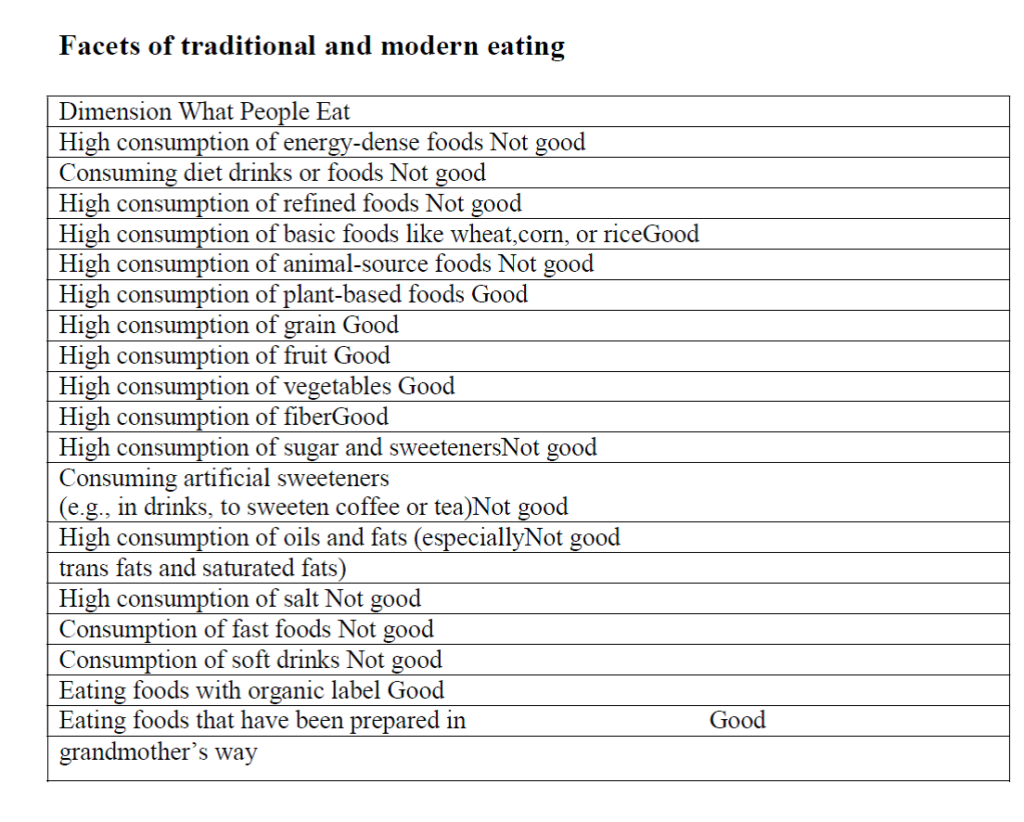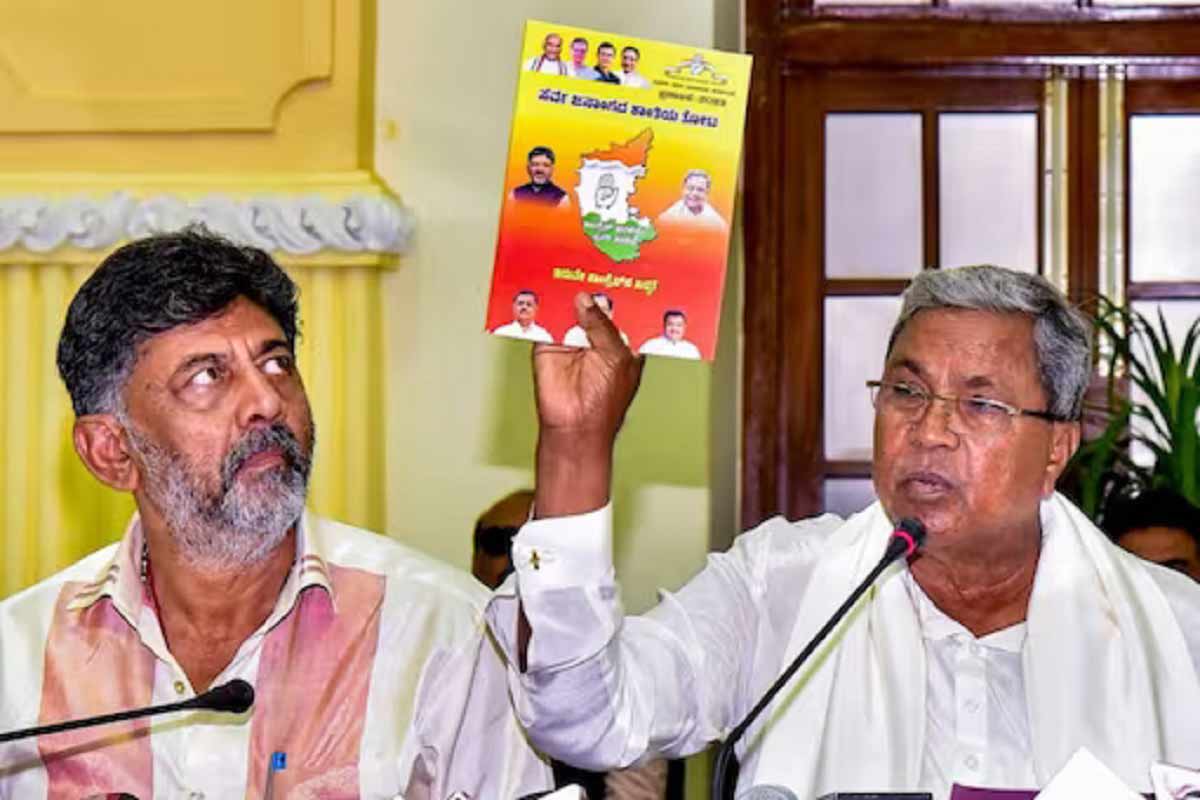Just yesterday, June 15, in a show of commitment to its election promise, Karnataka under Siddaramaiah has decided to repeal the Karnataka Protection of Right to Freedom of Religion Act. This decision was taken at a cabinet meeting yesterday, June 15 and announced to the public. “Article 21 of the Constitution already gives everyone the freedom to choose their religion and to follow any religion they want. This [the law passed by the BJP] has been done to erase the minorities. If we come to power, we will restore it to whatever the law said earlier,” Siddaramaiah had said during the election campaign.
There was more. Further, the Karnataka cabinet has also decided to remove school textbook lessons on RSS founder K B Hedgewar and others, reported Deccan Herald. The government also plans to make reading of the Preamble of the Constitution in all schools and colleges. Since the textbooks for the year have already been printed the government has decided that a supplementary booklet would be sent to all schools immediately, with instructions on what should be there in the textbooks or what not in the Kannada and Social Knowledge textbook of classes 6 to 10, reported India TV.
Now, comes the crux. Although the current Congress government had also promised to scrap the controversial National Education Policy –NED (euphemistically dubbed the ‘Nagpur Education Policy’ given the RSS’ sectarian stamp on it) and focus on state led syllabi in the interest of students, it become important to document the concerns about the 26 position papers that the Bommai-led BJP government had brought in to explicate the NEP. This is key so that they don’t become an unchallenged template for other states
Of the 26 position papers that the BJP government in Karnataka had brought out to feed into the National Curriculum Framework (NCF) of the National Education Policy (NEP), the one on health and well-being is striking from a public health point of view. This position paper has been criticised by doctors, educationalists, nutritionists etc. for being ‘outrageous, outdated, unscientific and frivolous’, amidst demands for its immediate withdrawal. Although the current Congress government has thankfully promised to scrap the ‘Nagpur Education Policy’ and focus on state led syllabi in the interest of students, it is important to document the concerns about these position papers so that they don’t become an unchallenged template for other states.
The ‘experts’ who put together this position paper on Health and Wellbeing, under the Chairperson Dr. K John Vijay Sagar, Professor and Head of the Department of Child and Adolescent Psychiatry, include nutritionists, Ayurveda physicians, a yoga therapist, a diet lecturer and a gymnastics coach. They claim to have taken a ‘holistic’ approach to health and well-being.
Although the stated objective of the paper is to illustrate the importance of health, it embroils itself in irrational and unscientific propaganda that can be disastrous within an educational space. It quotes extensively from ‘ancient texts’ to showcase the ‘deep knowledge of ancient seers of India’ and ‘fundamental principles envisioned by the rishis of our country’. It is important for us to contemplate on whether this is the direction in which we want education in the country to head.
According to the paper, Ayurveda or the science of life, based on the tridosha principles (vata, pitta and kapha) and trigunas (sattva, rajas and tamas) supposedly control physical (doshas, dhātus and malas), physiological and psychological functions of both the body and the universe!!
That yoga is 3000 years old and Ayurveda is 5000 years old has been highlighted along with their various perceived benefits. Achara, ahara, vyayama and yoga are described as ‘the core of Indian culture’ and the document include mantras and shlokas from the bhagavad gita. Further, the paper states that according to yoga as explained in the taittriya Upanishad, the concept of health itself depends on the ‘pancha kosha’ or the five layers of body that cover the atman (or self). Doctors have challenged the director and head of child psychiatry at NIMHANS to provide proof for the existence of such ‘sheaths’ or to immediately withdraw the paper.
While there may be a role for yoga, and other traditional systems, in the holistic development of a child, one cannot embrace it in totality in an uncritical manner ascribing all kinds of unproved benefits to it.
In the table below, food being arbitrarily classified as good and not good, helps understand why any recommendations on food and nutrition by such groups is dangerous and prejudiced.

Source: Karnataka Position paper on health and Wellbeing
Diet drinks or food, refined foods, sweeteners, sugar, salt, fast foods, soft drinks are classified as ‘not good’, while cereals (wheat, corn, rice), grain, plant-based foods, fruit, vegetable, fibre are classified as good. Oils, fats and animal source foods have received a blanket label of ‘not good’. Clearly the authors are not aware that oils and fats are essential for absorption of fat soluble Vitamins A,D, E and K from food. Fats are also important source of energy and essential fatty acids which support numerous functions in the body. Low or absent fat in the diet can lead to a host of nutritional deficiencies and subsequent health issues.
The table then ends with a generic statement that ‘eating foods that have been prepared in grandmother’s way’ are good. Since the table also classifies meats (animal source foods) as not good, only the vegetarian, dominant caste grandmother would pass this test!! The grandmothers who lovingly prepare beef, pork, fish, dry fish and a variety of other culinary delicacies are not only erased completely but also succinctly identified as ‘not good’. The trauma that this inflicts on young children who are taught in schools that their traditional foods are inferior, polluted, unhealthy cannot be easily undone.
The paper also brings in the concept of gene diet interactions which would apparently decide what is best for “Indian ethnicity’ and the ‘natural choice of the race’. These prejudiced theories only serve to take the onus away from policy makers and elected representatives who readily blame genes for the malnutrition in the country “You are short-statured and of poor health because of your genetic make-up’. The fact is that when Indians are given adequate diets rich in all nutrients, they have heights and weights comparable with their Western counterparts. The paper further goes on to say that Indian’s ‘natural choice of food’ is plant based unlike the Western food choice. This argument is ridiculous on many fronts because Indians are no strangers to meat and it is hardly a “Western food choice’.
The paper goes on to say that there is no pankti bheda in the Indian way of eating and this can be ensured by similar foods be served to all children as part of the mid-day meal. Specifically mentioning eggs, they say “Serving different foods to the same graders will lead to an imbalance in the nutrient distribution among children. For example, serving other recipes or foods to the same graders, such as egg versus grams, or egg versus banana, leads to a nutritional imbalance among children. Additionally, children develop complexes that result in emotional disturbances among friends; treating all children equally and with no pankti bedha is authentic Indian philosophy or Dharma.”They go on to recommend that eggs be prohibited in the MDM. Diversity of foods and inclusion of nutrient dense foods in the MDM are now officially being labelled as discriminatory !!!
The paper further goes on to blame eggs and meat for lifestyle disorders and suggest that animal-based foods interfere with hormonal functions in humans. This has been called out by doctors in their open letter “There is now a mountain of evidence available to prove that it is the excessive consumption of sugars such as fructose (fruit sugar) and glucose (malt sugar, cereal grains) that is the most important cause for non-communicable diseases such as obesity, type 2 diabetes, hypertension, degenerative diseases and even many psychiatric problems such as ADHD, depression, anxiety etc., in children as well as adults. There is also enough evidence proving that eggs and proteins have a protective effect against obesity and other NCDs”.
Eggs for a healthy diet
A recent study in Karnataka has clearly showed that children who received eggs in their mid-day meal had significant gains in weight and body mass index (BMI). Quoting this and another study, the doctors state that, given a choice, a majority of children in Karnataka prefer eggs and if the authors of the position paper had indeed been concerned about not practicing pankti bheda or discrimination, they would not have opposed a majority of children eating eggs and other animal source foods of their choice.
Ignoring the widespread criticism of the MDM in Karnataka, specifically the ideological imposition by organisations such as Akshaya patra, the position paper states “The Karnataka government has successfully implemented midday meals with the support of many NGOs. As observed, the children enjoy the food supplied in the midday meal and the milk provided before the start of the class”. They suggest that textbooks should promote sattvik foods which they identify as ‘Indian food culture and the Indian way of thinking’. These preposterous presumptions not only lack evidence, they are also openly casteist and anti-minority.
Glorifying cereals and pulses as staple foods which apparently ‘prove that Indian food culture is the best’, the members of this group effectively erase not just the rich cultural and traditional food diversity of the country, but also, importantly, completely deny the visible and tangible nutritional and health consequences of this inadequate diet. Instead they feel that stories about Bheema and Hanuman’s eating habits will help children link eating the right (read sattvik) food to valour, courage and success.
Children from marginalised and vulnerable communities are constantly being told, particularly by their faculty in schools, that their own cultural practices are inferior. To become a part of mainstream or ‘cultured’ society, they are forced to deny, erase, reject and distance themselves from their own traditions. A child who is already malnourished, poorly educated and facing the possibility of bleak health outcomes is made to feel that his or her own family or community is responsible for this. This is adding salt on a chronic social wound and affects childrens’ sense of self-esteem. While beef has already been criminalised ad nauseum, eggs are projected as disgusting, forcing children to either stop eating these foods or lie about it. In the absence of an affordable and culturally relevant alternative, important sources of nutrition are removed from the childrens’ plates.
These prejudices, in combination with those in another position paper which openly classifies children into categories of worker, leader etc. institutionalise discrimination within public and private spaces. Children from marginalised communities are forced to experience about age old caste practices that neither reaffirm scientific thought nor their own culture. People of the country have to take note of and resist these kinds of position papers and policies that make a mockery of people’s struggles and aspirations and instead create templates for the agenda of the hindu rashtra.
(The author is a public health doctor and researcher based in Karnataka)
Related:
K’taka to repeal BJP’s controversial anti-conversion law; to remove Hedgewar from textbooks
Eggs, sprouts, millets once more part of mid-day meals: Karnataka

